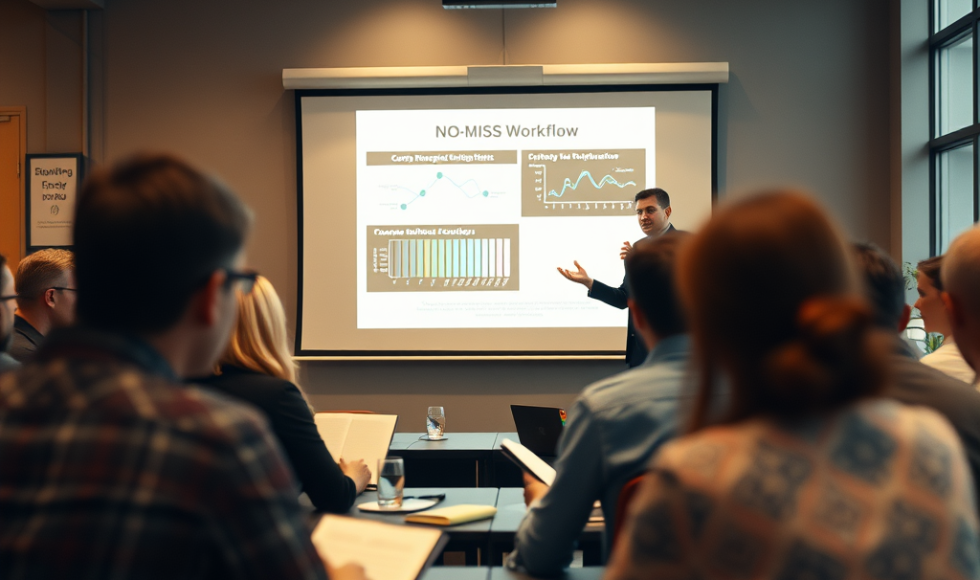We hosted a bioinformatics workshop with Oxford Nanopore Technologies specialists! It was fun to learn about EPI2ME updates. Tonight, I watched the beginning of a new Knowledge Exchange session focusing on “Sequencing and analysis of nanopore-only microbial isolates with the NO-MISS workflow.” The webinar began with a review of the applications related to microbial isolate […]
Tonight, I continued watching a Knowledge Exchange about direct RNA sequencing. Daniel Garalde, Associate Director of Technology Markets with Oxford Nanopore Technologies, introduced the Knowledge Exchange webinar I watched tonight. The title of the Knowledge Exchange is “How direct RNA nanopore sequencing can enhance your research.” Libby Snell, Director of RNA and cDNA Sample Technology, presented an update […]
I continued watching the ONT “Empowering comprehensive sequencing at scale” session. The next speaker in this session was Brynja Sigurpalsdottir who spoke about large-scale methylation studies. They spoke about how base calling is used to detect methylation. The team sequenced 7,179 whole blood samples sequenced on 8906 PromethION R9.4 flowcells! Twenty-two samples were sequenced on […]
Bosheng Li from the Institute of Advanced Agricultural Sciences of Peking University in China presented at London Calling 2024. The session’s title was “Plant T2T genome assembly using ultra-long and adaptive nanopore sequencing.” They spoke about the importance of ultra-long reads. These reads produce N50 length >100 kb. These are crucial in the assembly of […]
Sophia Gibson from the University of Washington presented at London Calling 2024 on “Haplotype-resolved repeat expansions & methylation patterns in 1000 Genome Project data.” Gibson noted that clinical genetic testing typically requires multiple tests and clinic visits… and is diagnostic in fewer than 50% of cases. This is described as the “diagnostic odyssey.” Long-read sequencing […]
Ping Lu from Peking University in China presented at London Calling 2024 on “Full-length RNA isoforms in human colorectal cancer at single-cell resolution.” Lu said colorectal cancer is the third most common cancer worldwide and the second leading cause of cancer death! Lu also mentioned that single-cell resolution is now necessary to better understand the […]
Darren Soanes from the University of Exeter in the UK spoke at London Calling about “DNA modifications in specific nuclei populations purified from human brain tissue.” Soanes is in the Complex Epigenetics Group at Exeter. They study cytosine modifications 5mC and 5hmC. The group has completed studies on methylation patterns in brain samples. Soanes noted […]
Rui Chen from Baylor College of Medicine presented at London Calling 2024 a session titled “Single-cell characterization of transcript isoforms with long-read RNA sequencing.” Their lab is interested in the retina since it is “the main target of irreversible blinding diseases.” In mice, there are over one hundred cell subtypes in the retina, noted Chen. […]
Billy Lau from Stanford University returned to London Calling 2024 and spoke about “Joint fragmentomic and methylation signatures of cfDNA for cancer detection.” They began by defining liquid biopsies for non-invasive cancer measurement as typically being blood draws used for sequencing and multi-omic analyses. They also explained how epigenetic reprogramming in cancer occurs and how […]
Sergey Batalov from the Rady Children’s Institute for Genomic Medicine in the US presented at London Calling 2024 on “Patterns in genomic methylation determined with long-read sequencing.” Rady Children’s Institute is the only level four NICU in San Diego, Riverside, and Imperial counties. The Rady Children’s Hospital provides care to 256,000 kids/year! However, only 35% […]








